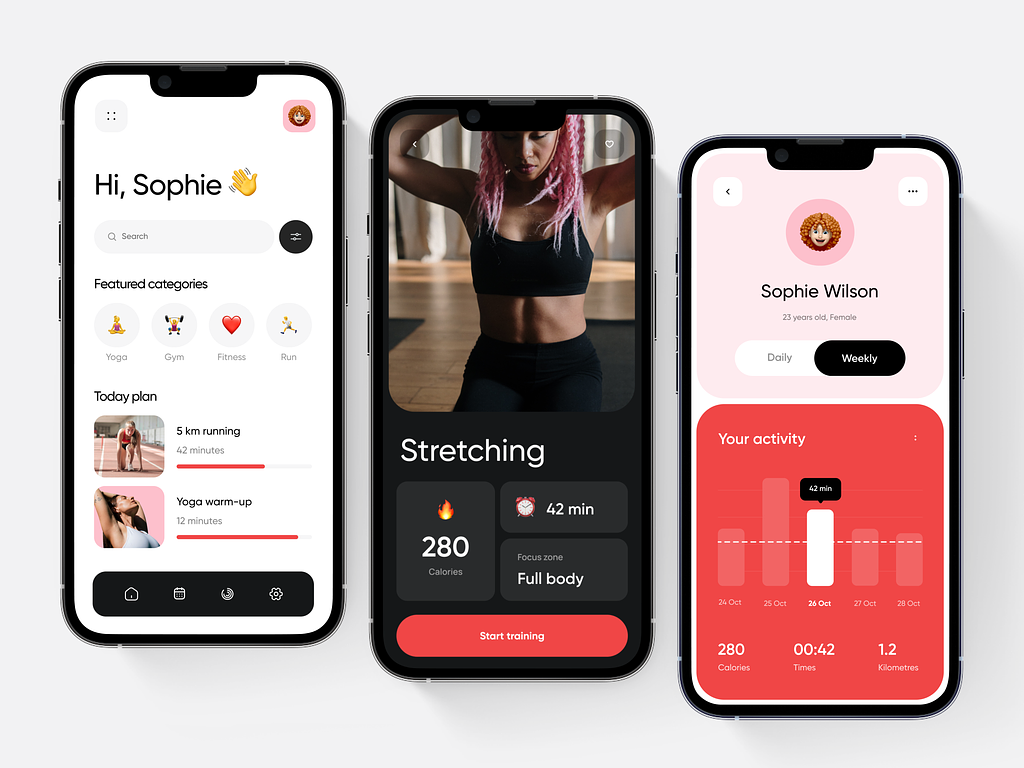Fitness App Development Companies: Innovating Solutions for a Healthier Tomorrow
In an era where digital transformation is reshaping industries, the health and wellness sector stands out as a prime beneficiary. Fitness App Development Companies, in particular, have become pivotal in this transformation, significantly impacting global health trends and individual well-being. Let’s explore how these companies are driving change and shaping the future of health and fitness.
Revolutionizing Accessibility to Fitness
One of the most significant contributions of fitness app development companies is the democratization of fitness resources. Traditional gyms and personal trainers often come with hefty price tags, which can be a barrier for many individuals. Fitness apps, however, offer a wide range of workouts, training plans, and nutrition advice at a fraction of the cost or even for free. This accessibility allows people from various socio-economic backgrounds to engage in health and fitness activities, fostering a more inclusive health culture.
Personalization and Customization
Fitness apps have made personalized health and fitness plans more attainable than ever before. Through sophisticated algorithms and data collection, these apps provide tailored workout plans, nutritional guidance, and health tracking based on individual goals, preferences, and progress. This level of personalization enhances user engagement and motivation, leading to better adherence to fitness routines and, consequently, improved health outcomes.
Gamification and Engagement
The integration of gamification in fitness apps has transformed exercising from a mundane task into an engaging and enjoyable experience. Features such as challenges, leaderboards, and rewards create a competitive yet supportive environment that encourages users to stay committed to their fitness goals. This approach not only boosts user motivation but also fosters a sense of community among app users, contributing to a more active and health-conscious society.
Integration with Wearable Technology
The synergy between fitness apps and wearable technology, such as smartwatches and fitness trackers, has enhanced the accuracy and comprehensiveness of health monitoring. Wearables provide real-time data on physical activity, heart rate, sleep patterns, and more, which can be seamlessly integrated with fitness apps. This integration allows users to track their progress more effectively, make data-driven decisions about their health, and gain deeper insights into their overall well-being.
Supporting Mental Health
Fitness apps are not only addressing physical health but also increasingly focusing on mental well-being. Many apps now offer features such as guided meditations, stress management techniques, and mood tracking. By addressing the mind-body connection, these apps contribute to a holistic approach to health that acknowledges the importance of mental wellness in achieving overall well-being.
Encouraging Healthy Habits
Beyond individual workouts, fitness apps often include educational resources and tools to promote long-term healthy habits. This can range from meal planning and nutritional advice to tips on improving sleep quality and managing stress. By providing users with a comprehensive toolkit for health management, these apps encourage sustainable lifestyle changes that can lead to lasting improvements in health.
Challenges and Opportunities
While the impact of fitness app development companies is overwhelmingly positive, there are challenges to address. Privacy concerns regarding the handling of sensitive health data, the risk of misinformation, and the potential for over-reliance on technology are notable issues. Ensuring data security, providing accurate and evidence-based information, and promoting a balanced approach to fitness are crucial for maintaining the credibility and effectiveness of these apps.
As the fitness app market continues to evolve, there are opportunities for further innovation. Advances in artificial intelligence, virtual reality, and augmented reality could further enhance the user experience and effectiveness of fitness apps. Additionally, collaborations with healthcare providers and integration with broader health management systems could make these tools even more valuable in promoting global health.
Conclusion
Fitness app development companies have profoundly impacted the global health landscape by making fitness more accessible, personalized, and engaging. Their innovations have democratized fitness resources, supported mental well-being, and encouraged healthier lifestyles. As technology continues to advance, the potential for these apps to contribute to global health improvements remains vast. Embracing these changes and addressing the associated challenges will be key to maximizing the benefits of fitness apps in fostering a healthier world.







https://mazda-demio.ru/forums/index.php?autocom=gallery&req=si&img=6343